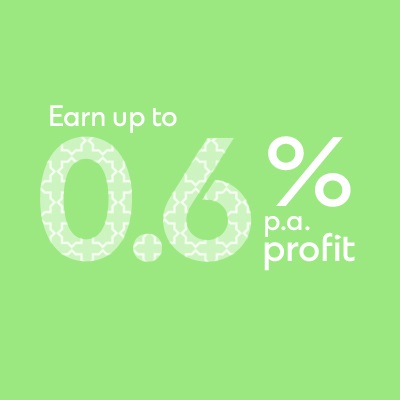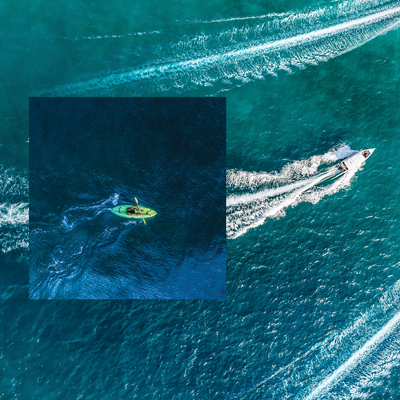Islamic Banking
Choose from a variety of Islamic solutions that match your aspirations
Inspired by the Arabic word for ‘truthful’, Saadiq is our global Islamic banking network spanning across Asia, Africa, and the Middle East, combining deep Shariah expertise with strong business acumen.
We put your beliefs and values first by offering Shariah compliant financial solutions with outstanding benefits, world-class customer service and relationship management.







Islamic banking is a system of conducting banking activities in line with the principles of Shariah while avoiding all the prohibited activities such as Interest/Riba, Gharar* (uncertainty), dealing in prohibited businesses (e.g. alcohol, gambling), etc.
‘Interest free banking’ is one of the key principles of Islamic banking. It allows you to avoid interest-based transactions, but in addition, also avoid unethical and socially unacceptable practices prohibited under Shariah law, including: unfair trade practices, hoarding, speculation, etc.
Therefore, Islamic banking transactions are based on ‘tangible assets and real services’ as opposed to ‘conventional money lending’.
* Gharar: The uncertainty that is present in the basic elements of an agreement (i.e. wording of the agreement, subject matter, etc.)
The teachings of Islam are meant for both Muslims and non-Muslims. Universal values like honesty, justice, avoiding fraud, etc., form the basic principles of Islamic banking. Therefore, Islamic banking is for everyone irrespective of what religion they follow.
Shariah means a “Way” or “Path”. In Islam, Shariah means guidance and laws given by the Holy Quran and the Hadith/Sunnah of the Holy Prophet (Peace Be Upon Him). It also includes juristic interpretations of Islamic scholars. Islamic Shariah is derived from the following four sources:
1. The Holy Quran
2. The Sunnah of the Holy Prophet (Peace Be Upon Him)
3. Ijma’ (consensus of the Mujtahideen – ‘Independent Jurists’)
4. Qiyas (Analogy)
Riba” means excess, increase or addition. As per Hadith of the Holy Prophet (Peace Be Upon Him), “Every loan that derives a benefit (to the lender) is Riba”. Therefore, interest means giving and/or taking of any excess amount in exchange of a loan or on debt. Hence, it has the same meaning as that of Riba.
This is not the case. Islamic banks accept deposits from customers on profit and loss sharing or on the basis of “Qard”. These funds are used in Shariah compliant modes of finance, trade or investment. The income generated by these Shariah compliant modes are then distributed among the depositors as profit.
CONVENTIONAL BANKING
ISLAMIC BANKING
Mudarabah is an arrangement in which a person (called Rab-ul-Mal) participates with his money and another person (called Mudarib) participates with his efforts. The parties agree, at the beginning, on a profit sharing ratio between them.
Musharakah is a partnership contract. The profits are shared as per agreed ratios between partners and losses are borne in proportion to their respective capital contributions.
Diminishing Musharakah (DM) is a form of co-ownership in which two or more persons share the joint ownership of a tangible asset (e.g. house) in an agreed proportion. It is agreed that one of the co-owners will purchase, in periodic instalments, the share of the other co-owner until the ownership of that tangible asset is completely transferred to the purchasing co-owner. Furthermore, along with the purchase of share, the (purchasing) co-owner will also make periodic payments for the usage of other co-owner’s share in the asset.
Musawamah is the general sale of goods whereby the seller is not obliged to disclose to the buyer the cost of goods sold.
Salam is a sale transaction in which the seller agrees to supply specific goods to the buyer at a future date against an advance payment which is fully paid at spot. The basic purpose of Salam is to meet he needs of the small farmers for the production of agricultural products.
Istisna is a sale transaction where a commodity is transacted before it comes into existence. In Istisna, the buyer is given an order to manufacture a specific commodity. Following are necessary conditions for Istisna:
– Price is fixed with the consent of parties.
– The specification of the commodity to be manufactured must be agreed between parties.
Ijarah is a type of rental contract whereby the owner of an asset (e.g. house), transfers the right to use to another person for an agreed period and price.
Wakalah is an agency contract in which one person appoints another person as his agent to perform a certain task on his behalf on agreed terms and conditions, usually against a certain fee. A contract of Wakalah can take place only in respect of such acts which the principal is competent to perform himself, provided such act can be performed by the agent.
Kafalah is a contract in which a third party becomes surety i.e. provides guarantee for the payment of debt on behalf of the debtor. It is a pledge given by a third party to a creditor to the effect that if the debtor defaults in payment of the debt, it will be paid by said third party as Kafeel or guarantor.
Qard is a loan contract between two parties where borrower is required to repay only the sum borrowed. It is not allowed for lender to charge any compensation under a qard/loan contract.
Investment Products:
The content of this webpage does not constitute an offer, recommendation or solicitation of an offer to enter into a transaction or adopt any hedging, trading or investment strategy. It has not been prepared for any particular person or class of persons and does not constitute and should not be construed as investment advice nor an investment recommendation. It has been prepared without regard to the specific investment objectives, financial situation or particular needs of any person. You should seek advice from a licensed or an exempt financial adviser on the suitability of the product for you, taking into account these factors before making a commitment to purchase or invest in an investment. In the event that you choose not to seek advice from a licensed or an exempt financial adviser, you should carefully consider whether this product is suitable for you. You are fully responsible for your investment decision, including whether the product or service described here is suitable for you. The investment products mentioned are not principal-protected and you may lose all or part of your original investment amount. SCB will not accept any responsibility or liability of any kind, with respect to the accuracy or completeness of the information in this website.